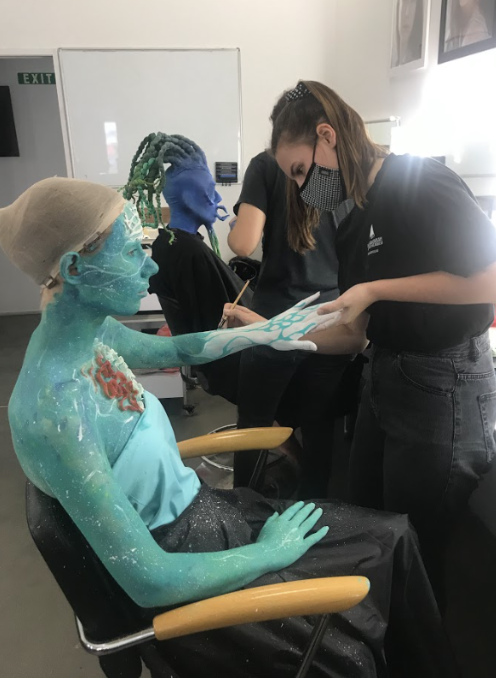If you are diving into the makeup artistry world, whether it be for a long-term career or a side hustle, there are a few things behind the scenes that are vital to know before taking on clients. A massive part of makeup, but unfortunately something that is not always a given, is keeping your applicators and products clean and safe. Do you really know how to keep your makeup applicators clean? If you have not yet taken a course on standards within the industry then an infection control certification may be for you.
If you are an owner of a business, working with a team on a production set with special effects or in a retail makeup store, then becoming certified in infection control will protect yourself, your clients and your colleagues when it comes to infection control. Through the recent years and challenging times of COVID19, it has become increasingly more important to have the correct protocols and processes in place for clean and infection-free work environments. We have all seen how quickly viruses and germs can spread if infection control is not in place. It is recommended that a makeup artist know how to take care of their area, client and products correctly.
In order to keep your makeup applicators and workspace clean and safe there are some crucial things you should follow in general that are:
- Effective and regular surface cleaning
- Hand hygiene and care of hands at all times
- Use of personal protective equipment (face mask)
- Enforcing clean and contaminated zones (clean sections for unused applications)
- Handling of waste (certain bins to throw out non-reusable products and applications)
- Hazard identification, control and reporting (Know the signs of problems and how to effectively control it and report to the correct person)
- Processes in place in the event of an incident
- Minimising the infection to others in the area
- Knowledge regarding the basis of infection and transmission
Some other in-depth steps you should follow are:
- Always clean your makeup brushes regularly to avoid bacteria build-up between each client (In most makeup stores there is a makeup sanitising spray for applicators)
- Don’t share makeup tools with clients unless they are reusable and washed or throw away applicators
- Sanitise your hands before each application
- Avoid applying makeup in areas that are already dirty, such as near your nose or mouth (have the client’s face cleaned before beginning application)
- Replace old or expired products
- Store cosmetics in a cool, dry place
The Australian Academy of Cinemagraphic Makeup offers an infection control course, which is highly recommended and provides the certification, knowledge and practical application for infection control.




